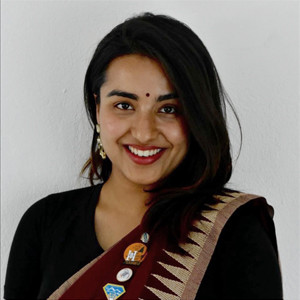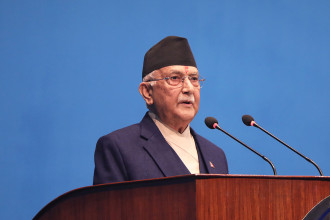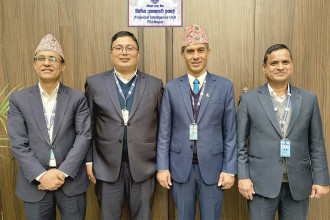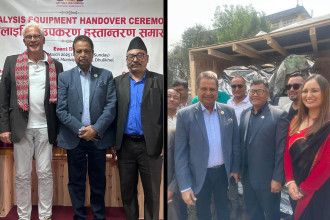KATHMANDU: Norvic International Hospital on Saturday organised a programme featuring a special talk on 'Atomic Habits', an international best-selling book by James Clear.
Dr Bharat Rawat, a Senior Cardiologist and Lifestyle Coach from Medanta Hospital in Indore, India, was the speaker at the programme.
James Clear is recognised as one of the world's leading experts on habit formation. In his book, he reveals practical strategies that teach people to form good habits, break bad ones, and master the tiny behaviours that lead to remarkable results.
|
|
|
|
The talk was attended by more than 200 individuals, including doctors, medical consultants, entrepreneurs, media representatives, and various personalities from different walks of life.
The event was opened by journalist Charu Chadha, who offered condolences on the recent passing of Dr Rawat's father. She recited a poem in his memory, and a minute's silence was observed.
The programme began with welcoming remarks by Ajay Mishra, CEO of Norvic International Hospital. He said, “Dr Rawat’s name is familiar to us. For almost 18 years, he led Norvic Hospital and provided remarkable assistance to thousands of Nepalis. Today, he is here to help us understand the book, Atomic Habits, in the simplest terms within an hour.”
Mishra expressed hope that the programme would bring positivity among all the attendees and further shared his view of Dr Rawat as more of a lifestyle coach than a cardiologist.
Delivering the essence of James Clear's book, Dr Rawat began with the four highlights: fundamentals, the four laws, advanced tactics, and the conclusions. He said, “Whatever I am presenting are not my own words. They are from James. Everything I will mention now will be from him, not me.”
He described the term ‘atomic’ as a small amount of matter with immense power, and habit as a practice. When small things are practised daily, they become a habit and ultimately an automatic habit, Dr Rawat explained. He quoted Aristotle, saying, “We are what we repeatedly do.” He shared that small and continued efforts help one grow.
According to Dr Rawat, statements such as 'forget about the goals, focus on system and process' and 'identity-based habit rather than outcome-based' were the opening statements of the book.
“Whenever our behaviour and identity are fully aligned, we are no longer pursuing behaviour change. We are acting like the type of person we already believe ourselves to be.”
At the programme, Dr Rawat offered various tips and techniques to quit unhelpful habits and develop helpful ones. He suggested making lists of unhelpful habits, doing conscious things unconsciously, and being aware of what we are actually doing. He mentioned the four laws of habit: if there are good habits, make them attractive, easier, obvious, and satisfactory. To get rid of bad habits, make them invisible, unattractive, hard, and unsatisfactory. He also added a few rules such as the Two-Min rule.
According to the book 'Atomic Habits', habits can be built in four steps: the first is the cue - the triggering thing to adopt a habit, the craving part - when we are motivated to do something; the response part - when one actually performs it and finally the reward when we motivate our brain to repeat the same action.
He further emphasized the importance of creating a favourable environment to build habits and tracking the work one is doing. However, he also cautioned that too much tracking can be counterproductive. This book has also highlighted the human tendency to overvalue numbers and undervalue anything that is ephemeral. Rawat said, “Just because you can measure something doesn’t mean it's the most important thing and just because you can’t measure something doesn’t mean it’s not important at all.”
Rawat concluded with some downsides of forming habits. For example, becoming rigid in one particular habit might make a person more automatic and machine-like. He further said, “Your identity creates ‘pride’ that encourages you to deny your weak spots and prevents you from truly growing.” He insisted on being flexible and not brittle.
Cardiothoracic surgeon Dr Bhagwan Koirala, National Cardiac Centre Founder and Chairman Om Murti Anil, Dwarika’s Group President Ambica Shrestha and her daughter Sangita Shrestha, Norvic International Hospital Executive Director Manish Khemka and some other personalities posed their queries and gave some feedback on the talk programme.
Norvic International Hospital Managing Director Megha Chaudhary, in her closing remarks, referring to Dr Rawat, said, “Beyond your medical expertise, your role as a lifestyle coach has been transformative. You have not only treated illnesses but educated people and motivated them towards healthier and more fulfilling lives. As you talk about Atomic Habits, we are reminded of your belief in the power of small changes that add up to significant life improvements.”
She welcomed Dr Rawat and expressed her immense gratitude, thanking him for his visit to Nepal.
The programme concluded with a high tea and networking event.





-1743399264.jpg)
